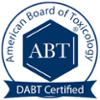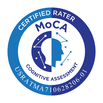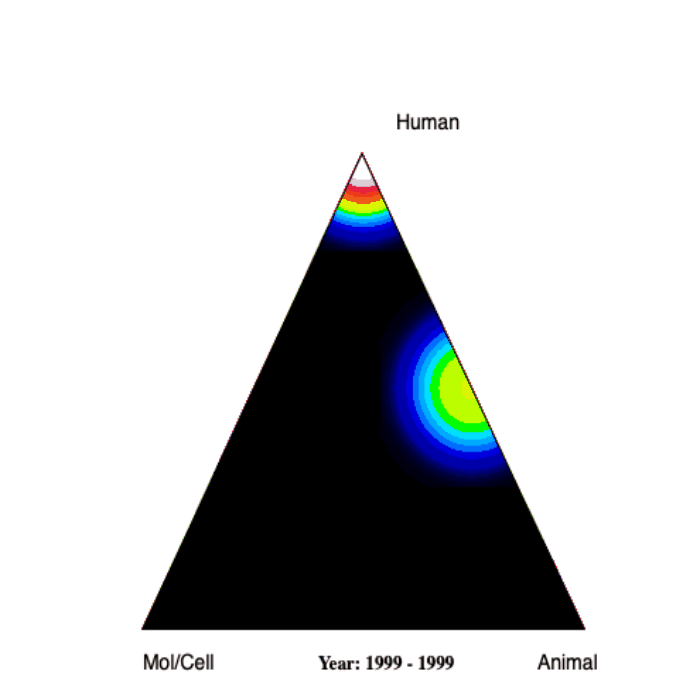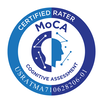Dr. Marcia Ratner is a Board Certified Toxicologist and clinically trained Behavioral Neuroscientist specializing in Neurotoxicology. She is internationally renowned for her work as a neurotoxicologist. She is an Assistant Professor and Director of the Laboratory of Neurotoxicology in the Department of Pharmacology and Experimental Therapeutics at the Boston University Chobanian and Avedisian School of Medicine.
Education:
Dr. Ratner earned her undergraduate degree in Psychology from Boston University where she also completed her premedical requirements and was a member of Psi Chi, the International Honor Society in Psychology.
Dr. Ratner completed her doctoral training in Behavioral Neuroscience at the Boston University School of Medicine where she trained in the Department of Neurology under the supervision of Drs. Robert G. Feldman MD Professor and Chair, Department of Neurology and Raymon Durso MD, Director, Neuropharmacology Laboratory, VA Healthcare System. While Dr. Ratner was training in the Department of Neurology at the BUSM, she was a member of the Environmental and Occupational Neurology Program through which she gained her extensive expertise in the use of clinical neurological, neurophysiological, neuroradiological, and neuropsychological measures to assess for neurotoxicant-induced changes in human nervous system function. She gained additional expertise in neuropsychological assessment and interpretation of neuropsychological test data using the Boston Process Approach from Dr. Edith Kaplan who served as a member of her qualifying examination committee and Dr. Roberta White with whom she co-authored the chapter titled "Neurobehavioral Toxicology" which appears in the Encyclopedia of the Human Brain.
Dr. Ratner's dissertation research demonstrated that age at onset of sporadic Parkinson's disease occurs earlier in subjects with a history of occupational exposure to metals such as manganese and pesticides. Her early pioneering work as a thought leader in this area of research is highlighted in the chapter she coauthored with Dr. Robert Feldman for the book Parkinson's Disease. Her research in this area has since been independently replicated and expanded upon by other investigators (see Gamache et al., 2019) demonstrating not only the enduring importance of this work but also its rigor and reproducibility.
Dr. Ratner subsequently completed a three year NIH/NIA (National Institute on Aging) funded Post Doctoral Fellowship in the Biochemistry of Aging under the guidance of Dr. David H. Farb in the Department of Pharmacology and Experimental Therapeutics at the Boston University School of Medicine. This post doctoral training provided Dr. Ratner with the necessary skills to successfully perform highly translational preclinical in vivo electrophysiological investigations aimed at elucidating the role of chemical exposures in the onset and progression of age-related neurodegenerative diseases using rodent models. Her publication titled " Probing the neural circuitry targets of neurotoxicants in vivo through high density silicon probe brain implants" has set a new standard of excellence for translating preclinical neurotoxicology data to observations in humans.
Board Certifications:
Dr. Ratner is a Diplomate of the American Board of Toxicology. The DABT is the most prestigious professional credential a toxicologist can earn. Diplomates are required to meet stringent standards related to their training and professional experience and to demonstrate competency in all aspects of toxicology on the ABT board exam.
Additional Training:
Dr. Ratner has completed Federal Emergency Management Agency (FEMA) Emergency Management Institute training in Hazardous Materials, Radiological Emergency Management and ICS-100 Incident Command System training. This training is designed to support the Department of Homeland Security and FEMA’s goals. The FEMA Emergency Management Institute (EMI) is the emergency management community’s flagship training institution. The EMI provides training to Federal, State, local, tribal, volunteer, public, and private sector officials to strengthen emergency management core competencies at all levels to better prepare for, protect against, respond to, recover from, and mitigate the potential effects of all types of disaster.
Dr Ratner is also certified to administer and score the Montreal Cognitive Assessment which empowers healthcare professionals and researchers to detect cognitive deficits due to Alzheimer's disease, Parkinson's disease and other forms of dementia.
Professional Organizations:
Dr. Ratner is a Fellow of the Royal Society of Medicine and a member in good standing of the: Society of Toxicology; American Academy of Clinical Toxicology; American Academy of Neurology; and, American Psychological Association.
Research Interests:
Dr. Ratner's research interests include the use of cutting edge in vivo electrophysiological techniques to study chemical exposure induced changes in neuronal function with an eye toward identifying novel therapeutics for treating the effects of neurotoxicant exposure and slowing the progression of age-related neurodegenerative diseases such as Alzheimer's and Parkinson's disease. Click here to see an example of Dr. Ratner's exciting and highly translational research using this powerful in vivo recording technology in her quest to better understand how chemicals modify neurological function. Dr. Ratner is the only board certified toxicologist listed on Google Scholar who also has expertise in the use of in vivo electrophysiology for studying the acute and chronic effects of chemicals on neural network activity in preclinical animal models of neurodegenerative disease and neurotoxicity. Her research using this highly translational method has demonstrated that the neural circuitry in aged-related models of prodromal neurodegenerative disease responds differently to drugs than does the intact neural circuitry of healthy subjects (Robitsek et al., 2015; Ratner et al, 2021).
Summary:
Dr. Ratner's extensive training, first at the bedside in the Department of Neurology, and then at the bench in the Department of Pharmacology and Experimental Therapeutics at the BUSM has provided her with genuine translational research experience in clinical as well as basic neuroscience and neurotoxicology enabling her to effectively evaluate how chemicals alter neurological function and modify the progression of neurodegenerative diseases in both humans and animals. This combination of training has allowed Dr. Ratner to effectively evaluate the translational relationships between clinical outcomes and the results of preclinical research in age-related neurodegenerative diseases such as Parkinson's and Alzheimer's. Her publications reflect her training, experience and expertise in these areas and her research has resulted in several highly influential peer reviewed publications related to toxicology, drug discovery, and the relationship between occupational and environmental exposure to chemicals and the pathogenesis of neurodegenerative disease.
The outstanding contributions of Dr. Ratner and her colleagues to neurotoxicology and admissibility of medical and scientific evidence under Daubert in toxic tort litigation are discussed by Attorney Alan Bell in his memoir "Poisoned: How a Crime-Busting Prosecutor Turned His Medical Mystery into a Crusade for Environmental Victims". The opinions and work of Dr. Ratner and her colleagues has been cited in the Reference Manual on Scientific Evidence, Third Edition, Federal Judicial Center, National Research Council. Case law based on the work of Dr. Ratner and her colleagues is frequently cited as a reference in tort litigation. Dr. Ratner has also served as an invited scientific advisor to the Workplace Safety Insurance Board of Ontario, Canada.
Other:
Dr. Ratner is the former Vice President and Director of Research for Chemical Safety Net, Inc. which she cofounded with her former mentor Dr. Robert G. Feldman.
Dr. Ratner is a registered member of ForensisGroup.
Relevant Publications:
Ratner MH, Rutchik J. Neurofilament Light Chain and Mercury Amalgam Fillings in Monozygotic Twins Discordant for Multiple Sclerosis Case Report. Neuroimmunology Reports. 2022. doi: 10.1016/j.nerep.2022.100140
Rutchik J, Ratner MH. Advances in Neurotoxicology. Clinical evaluation and differential diagnosis of neurotoxic disease. Academic Press.Volueme 7, June 20, 2022. doi: 10.1016/bs.ant.2022.05.003
Rutchik j, Ratner MH. Advances in Neurotoxicology. Diagnosis and management of occupational and environmental carbon monoxide neurotoxicity, . Academic Press. Volume 7, June 9, 2022. doi: 10.1016/bs.ant.2022.04.002.
Ratner MH, Farb DH. Probing the neural circuitry targets of neurotoxicants in vivo through high density silicon probe brain implants. Front. Toxicol. 2022, 4:836427. PMID: 35548683
Ratner MH, Downing SS, Guo O, et al. Prodromal dysfunction of α5GABA-A receptor modulated hippocampal ripples occurs prior to neurodegeneration in the TgF344-AD rat model of Alzheimer’s disease. Heliyon, September 2021, 7(9): e07895. PMID: 34568591
Rutchik JS, Bowler R, Ratner MH. A Rare Case of Holmes Tremor in a Worker with Occupational Carbon Monoxide Poisoning. Am J Ind Med. 2021; 1– 15. doi: 10.1002/ajim.23235
Ratner MH, Ewing WM, Rutchik JS. (2020) Neurological Effects of Chronic Occupational Exposure to Alcohol Mists and Vapors in a Machinist. Toxicology Communications, 4(1): 43-48. doi: 10.1080/24734306.2020.1768341
Rutchik J, Ratner MH. (2019) Should Age at Onset of Parkinsonism be the End Point of Interest in Investigations of the Link Between Exosomal α-Synuclein and Manganese Exposure in Welders? JOEM, 61(12):e530-e531. PMID: 31568106; doi: 10.1097/JOM.0000000000001720
Rutchik J, Ratner MH. (2018) Is it Possible for Late Onset Schizophrenia to Masquerade as Manganese Psychosis? J Occup Environ Med. 60(4):e207–e209. PMID: 29438152; doi: 10.1097/JOM.0000000000001296
Ratner MH, Jabre JF, Ewing WM, Abou-Donia M, Oliver LC: (2017) Amyotrophic lateral sclerosis—A case report and mechanistic review of the association with toluene and other volatile organic compounds. Amer J Ind Med, 61:251–260. PMID: 29125194
Ratner, MH, Jabre, JF (2017) Neurobehavioral Toxicology. In Reference Module in Neuroscience and Biobehavioral Psychology, Elsevier.
DOI: 10.1016/B978-0-12-809324-5.03117-5
Ratner MH: (2016) A critical review of the interrelationships between genetics, neurotoxicant exposure, and age at onset of neurodegenerative diseases. Current Topics in Toxicology. 12:1-10. Embase PUI: L616391802
Robitsek RJ, Ratner MH, Stewart TM, Eichenbaum H, Farb DH: (2015) Combined administration of levetiracetam and valproic acid attenuates age related hyperactivity of CA3 place cells, reduces place field area, and increases spatial information content in aged rat hippocampus. Hippocampus. 25(12):1541–1555. PMID: 25941121
Ratner MH, Farb DH, Ozer JS, Feldman, RG, Durso R: (2014) Younger age at onset of sporadic Parkinson’s disease among subjects occupationally exposed to metals and pesticides. Interdisciplinary Toxicology. 7(3):123–133. PMID: 26109889
Ozer J, Ratner M, Shaw M, Bailey W, Schomaker S. The current state of serum biomarkers of hepatotoxicity. Toxicology. 2008 Mar 20;245(3):194-205. PMID: 18291570.
Ratner MH and Jabre J: Treatment of Neurotoxic Effects of Gases: Carbon Monoxide, Hydrogen Sulfide, and the Nitrogen Oxides. In: Noseworthy, J.H. (ed); Neurological Therapeutics: Principles and Practices. Chapter 148, London, Martin Dunitz, pp. 1701-1706, 2006.
Ratner MH and Jabre J: Treatment of Neurotoxic Effects of Organic Solvents. In: Noseworthy, J.H. (ed); Neurological Therapeutics: Principles and Practices. Chapter 147, London, Martin Dunitz, pp1694-1700, 2006.
Ratner MH, and Feldman RG: Environmental Toxins and Parkinson’s Disease. In: Ebadi M. and Pfeiffer, R.F.(eds): Parkinson’s Disease. Boca Raton, CRC Press, Chapter 6, pp 51-62, 2005.
Feldman RG, Janulewicz PA, Ratner MH: Parkinsonism. In: Levy BS, Wagner GR, Rest KM, Weeks JL, (eds) Preventing Occupational Disease and Injury. American Public Health Association, 2nd Edition, Part II: Preventing Occupational Diseases, pp 376-382; 2004.
Feldman RG, Nelson S, and Ratner MH: Multiple Sclerosis. In: Levy B.S., Wagner G.R., Rest K.M., and Weeks J.L. (eds.); Preventing Occupational Disease and Injury. American Public Health Association Publication, pp 361-365, 2005.
Feldman RG, and Ratner MH: Heavy Metal Poisoning. In: Lynn, D. J., Newton, H.B., and Rae-Grant, A.D. (eds): The 5-Minute Neurology Consult. Philadelphia, Lippincott, Williams & Wilkins, pp 218-219, 2004.
Ratner MH, Feldman RG, and White RF: Neurobehavioral Toxicology. In: Ramachandran V.S. (ed); Encyclopedia of the Human Brain. New York, Elsevier Science, Vol. 3, pp 423-439, 2002.
Feldman RG, Ratner MH: (1999) The pathogenesis of neurodegenerative disease: neurotoxic mechanisms of action and genetics. Curr Opin Neurol. 12(6):725-731. PMID: 10676756
Feldman RG, Ratner MH, Ptak T: (1999) Chronic toxic encephalopathy in a painter exposed to mixed solvents. Environ Health Perspect. 107(5):417-422. PMID: 10210698.
Feldman RG, Ratner MH, Feldman ES: (1999) Approach to neurotoxicity tort cases. Neurol Clinics: Medical Legal Issues Facing Neurologists, 17(2):267-281. PMID: 10196408
Relevant publications on which Dr. Ratner has served as a consultant in neurotoxicology:
Friedman JH, Trieschmann ME, Myers RH, Fernandez HH: (2005) Monozygotic twins discordant for Huntington disease after 7 years. Arch Neurol. 62(6):995-997. PMID: 15956172
Editorials:
Ratner MH, Fitzgerald E. (2017) Understanding of the role of manganese in parkinsonism and Parkinson disease. Neurology 88(4):338-339. PMID: 28031391
Ratner MH: (2016) The Future Role of In vivo Electrophysiology in Preclinical Drug Discovery. EC Pharmacology and Toxicology
2.2: 108-109.
Invited Talks, Seminars, Webinars, Lectures and Blogs:
Marcia H. Ratner, PhD, DABT “Applied In vivo Electrophysiology: An Emerging Frontier in Preclinical Neurodegenerative Disease Research.” HSCI Research Seminar Series, Purdue University School of Health Sciences, West Lafayette, IN. October 12, 2021.
Marcia H. Ratner, PhD, DABT American Academy of Clinical Toxicology (AACT) Webinar presented by the Forensic Special Interest Section - "Mystery in a Machinist", presented online on July 7, 2020.
Marcia H. Ratner, PhD, DABT: Chronic “Toxic” Encephalopathy: The Other CTE. DifferentBrains.org January 29, 2020.
Marcia H. Ratner, PhD, DABT and Alan Bell, Esq. American Academy of Clinical Toxicology (AACT) October 2019 Section Webinar - Brain, Behavior and the Courts" presented online on October 1, 2019.
Marcia H. Ratner, PhD: American Academy of Clinical Toxicology (AACT) Forensics Section Symposium: Witness for the Prosecution: Honoring Your Toxilogical Expertise as an Expert Witness, ACPE Number: 0225-9999-18-220-L04-P, Presented the North American Congress of Clinical Toxicology, Chicago, IL, USA, October 28, 2018.
Marcia H. Ratner, PhD: Invited Blog Contribution: "The Role of Exposure to Neurotoxic Chemicals in Neurodiversity". DifferentBrains.org July 2, 2018.
Marcia H. Ratner, PhD: Invited Expert Panelist “On Becoming and Being an Expert Witness: Sharing Pearls & Pitfalls, & Venues, a Moderated Discussion with Experts". Monthly Webinar Series, American Academy of Clinical Toxicology, December 5, 2017.
Marcia H. Ratner: Invited Speaker: "Neurotoxicant Exposure in Early Onset Amyotrophic Lateral Sclerosis." Occupational Health Seminar Series Grand Rounds, Harvard School of Public Health. October 12, 2007.
Marcia H. Ratner: Invited Speaker: "Exciting New Frontiers for Neuropsychology: Magnetic Resonance Spectroscopy: The Case of Lead Exposure." Massachusetts Neuropsychological Society. February 1, 2005.
United States District Court Rulings:
Ratner, M.H., Landmark Daubert Hearing Ruling in Favor of Admissibility of Expert Testimony Concerning Chemical Exposures Hastening the Subclinical Progression of Amyotrophic Lateral Sclerosis, United States District Court, The Honorable F. Dennis Saylor, IV, Courtroom No. 22, One Courthouse Way, Boston, Massachusetts, January 7, 2008. Civil Action Number 05-cv-40048-FDS
Government Requested Opinion Papers:
Ratner, M.H., Scientific Opinion on Diagnostic Criteria for Young Onset Parkinson’s Disease Due to Occupational Exposure to Neurotoxic Chemicals, 2005, Prepared by request for the Workplace Safety and Insurance Board of Ontario, Canada.
Workplace Safety and Insurance Appeals Tribunal Decision No: 1804/09
Workplace Safety and Insurance Appeals Tribunal Decision No: 1281/14
Media Reports:
Dr. Ratner was recently interviewed by Thomas Collins of Neurology Today about her thoughts on recent data looking at the relationships between cortical thickness, plasma proteins and cognition in 9-11 World Trade Center Responders.
Dr. Ratner was recently interviewed by Jamie Talan of Neurology Today about her thoughts on Biogen’s revised interpretation of their aducanumab data.
Report about Dr. Ratner's work as an expert in neurotoxicology appears in the American Bar Association Journal, November, 2018.
Report about Dr. Ratner's work as an expert in ALS disease progression and neurotoxic chemical exposure appearing in Lexology written by co-authors: David R. Geiger and Eric Haskell, entitled "Massachusetts Federal District Court Permits Expert Testimony Regarding Hastening of Amyotrophic Lateral Sclerosis also known as Lou Gehrig's Disease."
Reporter Marilynn Larkin of Reuters Health interviews Dr. Ratner about her thoughts on the recent work of Dr. Brad Racette reporting on progression of parkinsonism in welders exposed to manganese. The article which appears in the January 4, 2017 issue of Managed Health Care Connect is entitled: Manganese Exposure tied to Parkinsonism Progression in Welders.
Last update: January 15, 2024
Education:
Dr. Ratner earned her undergraduate degree in Psychology from Boston University where she also completed her premedical requirements and was a member of Psi Chi, the International Honor Society in Psychology.
Dr. Ratner completed her doctoral training in Behavioral Neuroscience at the Boston University School of Medicine where she trained in the Department of Neurology under the supervision of Drs. Robert G. Feldman MD Professor and Chair, Department of Neurology and Raymon Durso MD, Director, Neuropharmacology Laboratory, VA Healthcare System. While Dr. Ratner was training in the Department of Neurology at the BUSM, she was a member of the Environmental and Occupational Neurology Program through which she gained her extensive expertise in the use of clinical neurological, neurophysiological, neuroradiological, and neuropsychological measures to assess for neurotoxicant-induced changes in human nervous system function. She gained additional expertise in neuropsychological assessment and interpretation of neuropsychological test data using the Boston Process Approach from Dr. Edith Kaplan who served as a member of her qualifying examination committee and Dr. Roberta White with whom she co-authored the chapter titled "Neurobehavioral Toxicology" which appears in the Encyclopedia of the Human Brain.
Dr. Ratner's dissertation research demonstrated that age at onset of sporadic Parkinson's disease occurs earlier in subjects with a history of occupational exposure to metals such as manganese and pesticides. Her early pioneering work as a thought leader in this area of research is highlighted in the chapter she coauthored with Dr. Robert Feldman for the book Parkinson's Disease. Her research in this area has since been independently replicated and expanded upon by other investigators (see Gamache et al., 2019) demonstrating not only the enduring importance of this work but also its rigor and reproducibility.
Dr. Ratner subsequently completed a three year NIH/NIA (National Institute on Aging) funded Post Doctoral Fellowship in the Biochemistry of Aging under the guidance of Dr. David H. Farb in the Department of Pharmacology and Experimental Therapeutics at the Boston University School of Medicine. This post doctoral training provided Dr. Ratner with the necessary skills to successfully perform highly translational preclinical in vivo electrophysiological investigations aimed at elucidating the role of chemical exposures in the onset and progression of age-related neurodegenerative diseases using rodent models. Her publication titled " Probing the neural circuitry targets of neurotoxicants in vivo through high density silicon probe brain implants" has set a new standard of excellence for translating preclinical neurotoxicology data to observations in humans.
Board Certifications:
Dr. Ratner is a Diplomate of the American Board of Toxicology. The DABT is the most prestigious professional credential a toxicologist can earn. Diplomates are required to meet stringent standards related to their training and professional experience and to demonstrate competency in all aspects of toxicology on the ABT board exam.
Additional Training:
Dr. Ratner has completed Federal Emergency Management Agency (FEMA) Emergency Management Institute training in Hazardous Materials, Radiological Emergency Management and ICS-100 Incident Command System training. This training is designed to support the Department of Homeland Security and FEMA’s goals. The FEMA Emergency Management Institute (EMI) is the emergency management community’s flagship training institution. The EMI provides training to Federal, State, local, tribal, volunteer, public, and private sector officials to strengthen emergency management core competencies at all levels to better prepare for, protect against, respond to, recover from, and mitigate the potential effects of all types of disaster.
Dr Ratner is also certified to administer and score the Montreal Cognitive Assessment which empowers healthcare professionals and researchers to detect cognitive deficits due to Alzheimer's disease, Parkinson's disease and other forms of dementia.
Professional Organizations:
Dr. Ratner is a Fellow of the Royal Society of Medicine and a member in good standing of the: Society of Toxicology; American Academy of Clinical Toxicology; American Academy of Neurology; and, American Psychological Association.
Research Interests:
Dr. Ratner's research interests include the use of cutting edge in vivo electrophysiological techniques to study chemical exposure induced changes in neuronal function with an eye toward identifying novel therapeutics for treating the effects of neurotoxicant exposure and slowing the progression of age-related neurodegenerative diseases such as Alzheimer's and Parkinson's disease. Click here to see an example of Dr. Ratner's exciting and highly translational research using this powerful in vivo recording technology in her quest to better understand how chemicals modify neurological function. Dr. Ratner is the only board certified toxicologist listed on Google Scholar who also has expertise in the use of in vivo electrophysiology for studying the acute and chronic effects of chemicals on neural network activity in preclinical animal models of neurodegenerative disease and neurotoxicity. Her research using this highly translational method has demonstrated that the neural circuitry in aged-related models of prodromal neurodegenerative disease responds differently to drugs than does the intact neural circuitry of healthy subjects (Robitsek et al., 2015; Ratner et al, 2021).
Summary:
Dr. Ratner's extensive training, first at the bedside in the Department of Neurology, and then at the bench in the Department of Pharmacology and Experimental Therapeutics at the BUSM has provided her with genuine translational research experience in clinical as well as basic neuroscience and neurotoxicology enabling her to effectively evaluate how chemicals alter neurological function and modify the progression of neurodegenerative diseases in both humans and animals. This combination of training has allowed Dr. Ratner to effectively evaluate the translational relationships between clinical outcomes and the results of preclinical research in age-related neurodegenerative diseases such as Parkinson's and Alzheimer's. Her publications reflect her training, experience and expertise in these areas and her research has resulted in several highly influential peer reviewed publications related to toxicology, drug discovery, and the relationship between occupational and environmental exposure to chemicals and the pathogenesis of neurodegenerative disease.
The outstanding contributions of Dr. Ratner and her colleagues to neurotoxicology and admissibility of medical and scientific evidence under Daubert in toxic tort litigation are discussed by Attorney Alan Bell in his memoir "Poisoned: How a Crime-Busting Prosecutor Turned His Medical Mystery into a Crusade for Environmental Victims". The opinions and work of Dr. Ratner and her colleagues has been cited in the Reference Manual on Scientific Evidence, Third Edition, Federal Judicial Center, National Research Council. Case law based on the work of Dr. Ratner and her colleagues is frequently cited as a reference in tort litigation. Dr. Ratner has also served as an invited scientific advisor to the Workplace Safety Insurance Board of Ontario, Canada.
Other:
Dr. Ratner is the former Vice President and Director of Research for Chemical Safety Net, Inc. which she cofounded with her former mentor Dr. Robert G. Feldman.
Dr. Ratner is a registered member of ForensisGroup.
Relevant Publications:
Ratner MH, Rutchik J. Neurofilament Light Chain and Mercury Amalgam Fillings in Monozygotic Twins Discordant for Multiple Sclerosis Case Report. Neuroimmunology Reports. 2022. doi: 10.1016/j.nerep.2022.100140
Rutchik J, Ratner MH. Advances in Neurotoxicology. Clinical evaluation and differential diagnosis of neurotoxic disease. Academic Press.Volueme 7, June 20, 2022. doi: 10.1016/bs.ant.2022.05.003
Rutchik j, Ratner MH. Advances in Neurotoxicology. Diagnosis and management of occupational and environmental carbon monoxide neurotoxicity, . Academic Press. Volume 7, June 9, 2022. doi: 10.1016/bs.ant.2022.04.002.
Ratner MH, Farb DH. Probing the neural circuitry targets of neurotoxicants in vivo through high density silicon probe brain implants. Front. Toxicol. 2022, 4:836427. PMID: 35548683
Ratner MH, Downing SS, Guo O, et al. Prodromal dysfunction of α5GABA-A receptor modulated hippocampal ripples occurs prior to neurodegeneration in the TgF344-AD rat model of Alzheimer’s disease. Heliyon, September 2021, 7(9): e07895. PMID: 34568591
Rutchik JS, Bowler R, Ratner MH. A Rare Case of Holmes Tremor in a Worker with Occupational Carbon Monoxide Poisoning. Am J Ind Med. 2021; 1– 15. doi: 10.1002/ajim.23235
Ratner MH, Ewing WM, Rutchik JS. (2020) Neurological Effects of Chronic Occupational Exposure to Alcohol Mists and Vapors in a Machinist. Toxicology Communications, 4(1): 43-48. doi: 10.1080/24734306.2020.1768341
Rutchik J, Ratner MH. (2019) Should Age at Onset of Parkinsonism be the End Point of Interest in Investigations of the Link Between Exosomal α-Synuclein and Manganese Exposure in Welders? JOEM, 61(12):e530-e531. PMID: 31568106; doi: 10.1097/JOM.0000000000001720
Rutchik J, Ratner MH. (2018) Is it Possible for Late Onset Schizophrenia to Masquerade as Manganese Psychosis? J Occup Environ Med. 60(4):e207–e209. PMID: 29438152; doi: 10.1097/JOM.0000000000001296
Ratner MH, Jabre JF, Ewing WM, Abou-Donia M, Oliver LC: (2017) Amyotrophic lateral sclerosis—A case report and mechanistic review of the association with toluene and other volatile organic compounds. Amer J Ind Med, 61:251–260. PMID: 29125194
Ratner, MH, Jabre, JF (2017) Neurobehavioral Toxicology. In Reference Module in Neuroscience and Biobehavioral Psychology, Elsevier.
DOI: 10.1016/B978-0-12-809324-5.03117-5
Ratner MH: (2016) A critical review of the interrelationships between genetics, neurotoxicant exposure, and age at onset of neurodegenerative diseases. Current Topics in Toxicology. 12:1-10. Embase PUI: L616391802
Robitsek RJ, Ratner MH, Stewart TM, Eichenbaum H, Farb DH: (2015) Combined administration of levetiracetam and valproic acid attenuates age related hyperactivity of CA3 place cells, reduces place field area, and increases spatial information content in aged rat hippocampus. Hippocampus. 25(12):1541–1555. PMID: 25941121
Ratner MH, Farb DH, Ozer JS, Feldman, RG, Durso R: (2014) Younger age at onset of sporadic Parkinson’s disease among subjects occupationally exposed to metals and pesticides. Interdisciplinary Toxicology. 7(3):123–133. PMID: 26109889
Ozer J, Ratner M, Shaw M, Bailey W, Schomaker S. The current state of serum biomarkers of hepatotoxicity. Toxicology. 2008 Mar 20;245(3):194-205. PMID: 18291570.
Ratner MH and Jabre J: Treatment of Neurotoxic Effects of Gases: Carbon Monoxide, Hydrogen Sulfide, and the Nitrogen Oxides. In: Noseworthy, J.H. (ed); Neurological Therapeutics: Principles and Practices. Chapter 148, London, Martin Dunitz, pp. 1701-1706, 2006.
Ratner MH and Jabre J: Treatment of Neurotoxic Effects of Organic Solvents. In: Noseworthy, J.H. (ed); Neurological Therapeutics: Principles and Practices. Chapter 147, London, Martin Dunitz, pp1694-1700, 2006.
Ratner MH, and Feldman RG: Environmental Toxins and Parkinson’s Disease. In: Ebadi M. and Pfeiffer, R.F.(eds): Parkinson’s Disease. Boca Raton, CRC Press, Chapter 6, pp 51-62, 2005.
Feldman RG, Janulewicz PA, Ratner MH: Parkinsonism. In: Levy BS, Wagner GR, Rest KM, Weeks JL, (eds) Preventing Occupational Disease and Injury. American Public Health Association, 2nd Edition, Part II: Preventing Occupational Diseases, pp 376-382; 2004.
Feldman RG, Nelson S, and Ratner MH: Multiple Sclerosis. In: Levy B.S., Wagner G.R., Rest K.M., and Weeks J.L. (eds.); Preventing Occupational Disease and Injury. American Public Health Association Publication, pp 361-365, 2005.
Feldman RG, and Ratner MH: Heavy Metal Poisoning. In: Lynn, D. J., Newton, H.B., and Rae-Grant, A.D. (eds): The 5-Minute Neurology Consult. Philadelphia, Lippincott, Williams & Wilkins, pp 218-219, 2004.
Ratner MH, Feldman RG, and White RF: Neurobehavioral Toxicology. In: Ramachandran V.S. (ed); Encyclopedia of the Human Brain. New York, Elsevier Science, Vol. 3, pp 423-439, 2002.
Feldman RG, Ratner MH: (1999) The pathogenesis of neurodegenerative disease: neurotoxic mechanisms of action and genetics. Curr Opin Neurol. 12(6):725-731. PMID: 10676756
Feldman RG, Ratner MH, Ptak T: (1999) Chronic toxic encephalopathy in a painter exposed to mixed solvents. Environ Health Perspect. 107(5):417-422. PMID: 10210698.
Feldman RG, Ratner MH, Feldman ES: (1999) Approach to neurotoxicity tort cases. Neurol Clinics: Medical Legal Issues Facing Neurologists, 17(2):267-281. PMID: 10196408
Relevant publications on which Dr. Ratner has served as a consultant in neurotoxicology:
Friedman JH, Trieschmann ME, Myers RH, Fernandez HH: (2005) Monozygotic twins discordant for Huntington disease after 7 years. Arch Neurol. 62(6):995-997. PMID: 15956172
Editorials:
Ratner MH, Fitzgerald E. (2017) Understanding of the role of manganese in parkinsonism and Parkinson disease. Neurology 88(4):338-339. PMID: 28031391
Ratner MH: (2016) The Future Role of In vivo Electrophysiology in Preclinical Drug Discovery. EC Pharmacology and Toxicology
2.2: 108-109.
Invited Talks, Seminars, Webinars, Lectures and Blogs:
Marcia H. Ratner, PhD, DABT “Applied In vivo Electrophysiology: An Emerging Frontier in Preclinical Neurodegenerative Disease Research.” HSCI Research Seminar Series, Purdue University School of Health Sciences, West Lafayette, IN. October 12, 2021.
Marcia H. Ratner, PhD, DABT American Academy of Clinical Toxicology (AACT) Webinar presented by the Forensic Special Interest Section - "Mystery in a Machinist", presented online on July 7, 2020.
Marcia H. Ratner, PhD, DABT: Chronic “Toxic” Encephalopathy: The Other CTE. DifferentBrains.org January 29, 2020.
Marcia H. Ratner, PhD, DABT and Alan Bell, Esq. American Academy of Clinical Toxicology (AACT) October 2019 Section Webinar - Brain, Behavior and the Courts" presented online on October 1, 2019.
Marcia H. Ratner, PhD: American Academy of Clinical Toxicology (AACT) Forensics Section Symposium: Witness for the Prosecution: Honoring Your Toxilogical Expertise as an Expert Witness, ACPE Number: 0225-9999-18-220-L04-P, Presented the North American Congress of Clinical Toxicology, Chicago, IL, USA, October 28, 2018.
Marcia H. Ratner, PhD: Invited Blog Contribution: "The Role of Exposure to Neurotoxic Chemicals in Neurodiversity". DifferentBrains.org July 2, 2018.
Marcia H. Ratner, PhD: Invited Expert Panelist “On Becoming and Being an Expert Witness: Sharing Pearls & Pitfalls, & Venues, a Moderated Discussion with Experts". Monthly Webinar Series, American Academy of Clinical Toxicology, December 5, 2017.
Marcia H. Ratner: Invited Speaker: "Neurotoxicant Exposure in Early Onset Amyotrophic Lateral Sclerosis." Occupational Health Seminar Series Grand Rounds, Harvard School of Public Health. October 12, 2007.
Marcia H. Ratner: Invited Speaker: "Exciting New Frontiers for Neuropsychology: Magnetic Resonance Spectroscopy: The Case of Lead Exposure." Massachusetts Neuropsychological Society. February 1, 2005.
United States District Court Rulings:
Ratner, M.H., Landmark Daubert Hearing Ruling in Favor of Admissibility of Expert Testimony Concerning Chemical Exposures Hastening the Subclinical Progression of Amyotrophic Lateral Sclerosis, United States District Court, The Honorable F. Dennis Saylor, IV, Courtroom No. 22, One Courthouse Way, Boston, Massachusetts, January 7, 2008. Civil Action Number 05-cv-40048-FDS
Government Requested Opinion Papers:
Ratner, M.H., Scientific Opinion on Diagnostic Criteria for Young Onset Parkinson’s Disease Due to Occupational Exposure to Neurotoxic Chemicals, 2005, Prepared by request for the Workplace Safety and Insurance Board of Ontario, Canada.
Workplace Safety and Insurance Appeals Tribunal Decision No: 1804/09
Workplace Safety and Insurance Appeals Tribunal Decision No: 1281/14
Media Reports:
Dr. Ratner was recently interviewed by Thomas Collins of Neurology Today about her thoughts on recent data looking at the relationships between cortical thickness, plasma proteins and cognition in 9-11 World Trade Center Responders.
Dr. Ratner was recently interviewed by Jamie Talan of Neurology Today about her thoughts on Biogen’s revised interpretation of their aducanumab data.
Report about Dr. Ratner's work as an expert in neurotoxicology appears in the American Bar Association Journal, November, 2018.
Report about Dr. Ratner's work as an expert in ALS disease progression and neurotoxic chemical exposure appearing in Lexology written by co-authors: David R. Geiger and Eric Haskell, entitled "Massachusetts Federal District Court Permits Expert Testimony Regarding Hastening of Amyotrophic Lateral Sclerosis also known as Lou Gehrig's Disease."
Reporter Marilynn Larkin of Reuters Health interviews Dr. Ratner about her thoughts on the recent work of Dr. Brad Racette reporting on progression of parkinsonism in welders exposed to manganese. The article which appears in the January 4, 2017 issue of Managed Health Care Connect is entitled: Manganese Exposure tied to Parkinsonism Progression in Welders.
Last update: January 15, 2024





